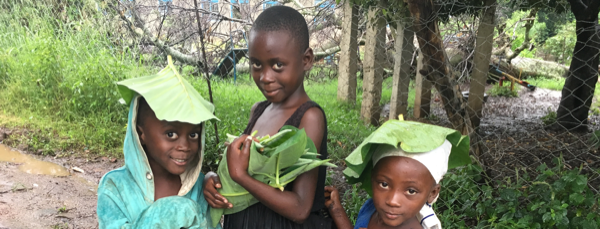
While many fungal diseases are neglected by public health authorities and poorly addressed, some fit the World Health Organization’s (WHO) definition of Neglected Tropical Diseases (NTDs). The NTD portfolio includes many parasitic diseases which have a profound impact on affected populations. They are both a symptom of poverty and a powerful contributor to the ‘poverty trap’. About 800 million people still live in extreme poverty (<$1.90 per day) (a 50% reduction on 20 years ago). Poor health contributes to self-perpetuating poverty along with conflict, limited earning potential and low educational attainment. [1] Most NTDs affect rural populations or populations living in areas of urban deprivation – people with little political voice and little power to influence government health policies. [2]
In order to be recognised as a neglected tropical disease by the WHO, its Strategic and Technical Advisory Group (STAG) for NTDs has developed a set of 4 criteria for the evaluation of diseases [3]. These are:
- Disproportionately affect populations living in poverty, causing important morbidity and mortality
- Affect populations living in tropical and sub-tropical areas
- Be immediately amenable to broad control, elimination or eradication (though diseases failing to meet this criteria may still be classified at NTDs, enabling advocacy for the development of these tools)
- Be relatively neglected by research
Among the fungal diseases, mycetoma was adopted as an NTD by the WHO in 2013 and chromoblastomycosis in 2017 with ‘other deep mycoses’. This is a great step forward from the perspective of improving the outcomes of patients with these serious diseases.
GAFFI believes 3 other fungal diseases should be included in the WHO’s NTD portfolio:
- Sporotrichosis – usually a subcutaneous infection similar to chromoblastomycosis
- Paracoccidioidomycosis – an endemic infection of S. America, with a high rate of serious complications
- Fungal keratitis – a sight-threatening infection of one eye usually following eye injury or contact lens wear, which can result in loss of the eyeball.
The diagnosis of mycetoma, chromoblastomycosis, most cases of sporotrichosis and some cases of paracoccidioidomycosis are diagnosed by microscopy, fungal culture and histopathology. Itraconazole is the treatment of choice for chromoblastomycosis, sporotrichosis and chromoblastomycosis. Linkage of these entities will provide some synergistic benefits in terms of training, diagnostic capability and access to antifungal therapy.
[1] Hotez PJ, Fenwick A, Savioli L, Molyneux DH. Rescuing the bottom billion through control of neglected tropical diseases. Lancet. 2009;373(9674):1570–5.
[2] WHO. Working to overcome the global impact of neglected tropical diseases. First WHO report on neglected tropical diseases. Geneva; 2010.
[3] WHO. Recommendations for the Adoption of Additional Disease as Neglected Tropical Diseases . Geneva; 2016.